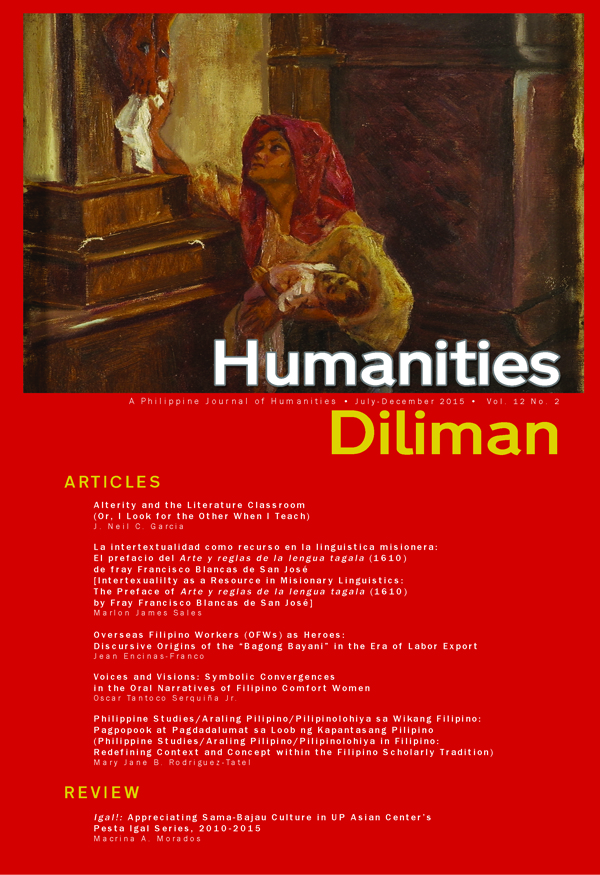Voices and Visions: Symbolic Convergences in the Oral Narratives of Filipino Comfort Women
Abstract
This paper analyzes oral narratives of 10 Filipino comfort women, who are members of the Liga ng mga Lolang Pilipina, or Lila Pilipina, an organization of victims and survivors of sexual slavery by Japanese military soldiers during the World War II in the Philippines. Guided by Ernest Bormann’s Symbolic Convergence Theory, this paper aims to describe the content, identify the salient structure, and determine the rhetorical vision in the oral narratives of Filipino comfort women. This paper argues that a pattern of characters, settings, and plotlines may be discerned from the oral narratives, and that these formal elements structurally and ideologically constitute the comfort women’s rhetorical vision of the future. This rhetorical vision is by and large a social drama that visualizes a just and warless society, renders the war as the major culprit in the destruction of Filipinos’ lives, and highlights the roles of Filipino comfort women and the youth in fighting militarization and in seeking peace and social justice in society.
Keywords: Philippine rhetoric, rhetorical criticism, fantasy theme analysis, rhetorical vision, World War II


